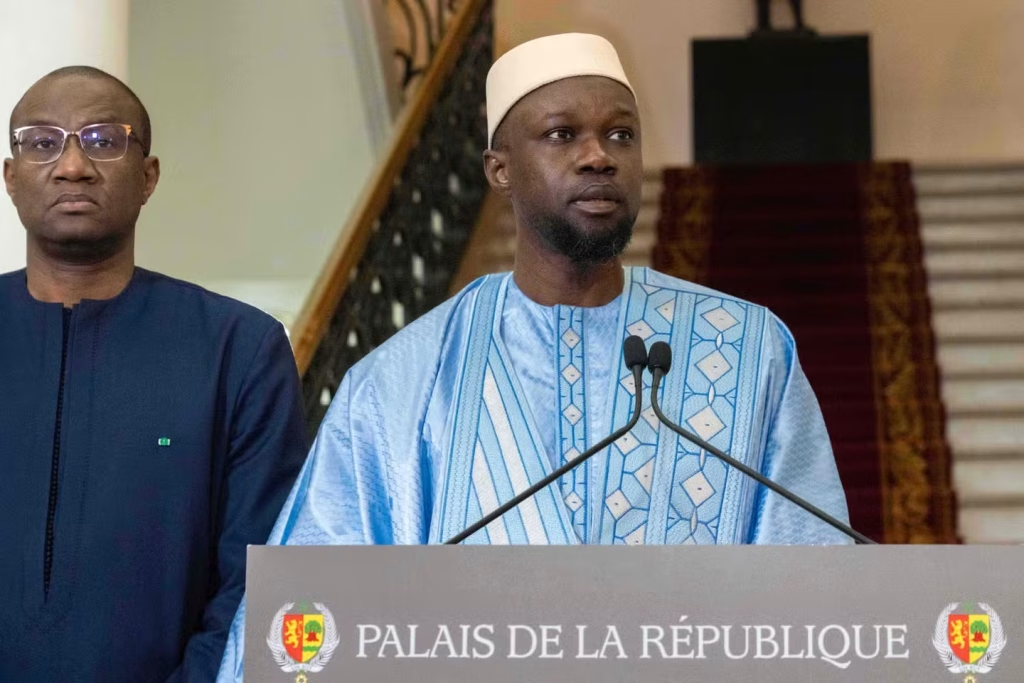Senegal’s Prime Minister, Ousmane Sonko, announced on Monday that he would remain as head of government rather than assume the presidency of the parliament, following his party’s landslide victory in the recent parliamentary elections.
The ruling Pastef party, led by President Bassirou Diomaye Faye and Sonko, secured 130 out of 165 seats in the national assembly during snap elections held on 17 November.
This victory, one of the largest parliamentary majorities in Senegal’s history, sparked debate over Sonko’s political role. Some argued that he should preside over the parliament to ensure institutional balance and avoid potential conflicts in an executive where the president’s position is closely tied to the prime minister.

Sonko, widely regarded as a highly influential figure, was instrumental in securing President Faye’s election victory in March and has served as prime minister since the government was formed in April.
Speaking at the national assembly ahead of the swearing-in of new lawmakers, Sonko said: “I will remain in the prime minister’s office. I have submitted my letter of resignation as an MP. We have begun work in the prime minister’s office, and the president needs me by his side. This work will continue.”
Following Sonko’s decision to remain as prime minister, Malick Ndiaye, a reputed close ally of Sonko and the current Minister of Transport, was elected as president of the national assembly on Monday.
The sweeping legislative victory by Pastef provides Senegal’s new leadership with the political leverage needed to push forward an ambitious reform agenda, as the nation grapples with high inflation and widespread unemployment.


